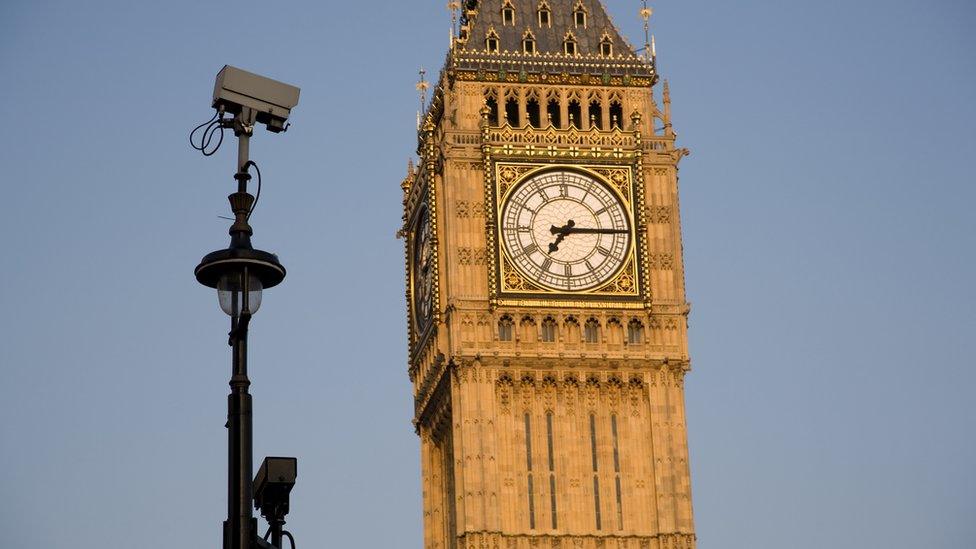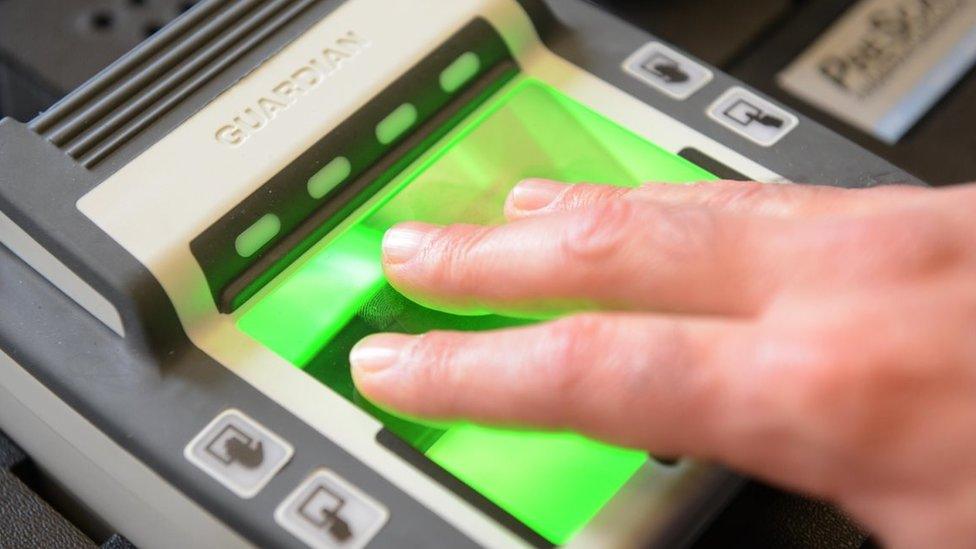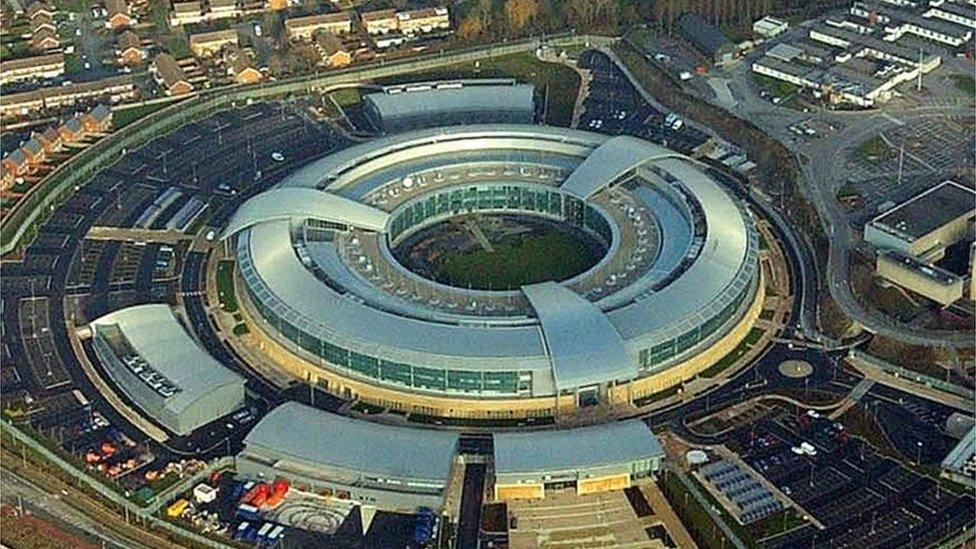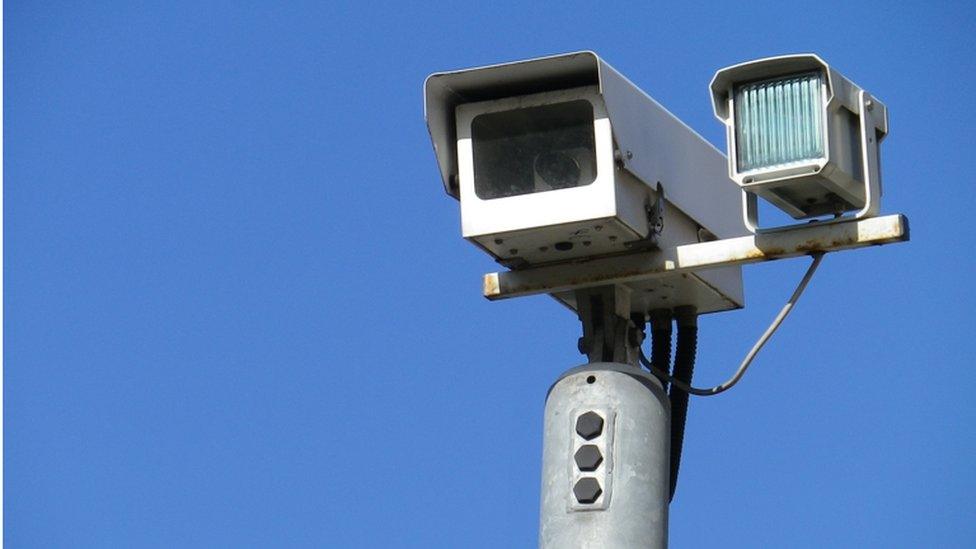'Snoopers' charter' petition hits signatures target
- Published

A petition asking the UK government to repeal its new Investigatory Powers Act now has more than 118,000 signatures.
This means that it must now be considered for parliamentary debate.
Internet providers will soon have to record which services, external their customers' devices connect to - including websites and messaging apps.
They must keep this information for one year and share it with various departments and organisations on demand.
The government says it will help in the fight against terrorism.
Its critics have named it the "snoopers' charter", and it is described in the petition, external as "an absolute disgrace to both privacy and freedom".
The act was first proposed by Prime Minister Theresa May when she was Home Secretary and was approved by the House of Lords on 19 November.
It is expected to become law by the end of 2016.
Blogger Chris Yiu compiled a list of the 48 organisations and departments, external that will be able to access the browsing records of individuals without a warrant.
They include various police, military, government and NHS departments as well as the Food Standards Agency, the Gambling Commission, the Financial Conduct Authority and the Health and Safety Executive.
The required data, external covers only the domain name of each site visited - www.facebook.com or www.bbc.com, for example - not the individual pages within them.
"So long right to privacy, hello 1984," wrote Mr Yiu.
'Mistakes will happen'
The chairman of the Internet Service Providers' Association (Ispa), told the BBC last week that he was concerned such a database would eventually be hacked.
"You can try every conceivable thing in the entire world to [protect it], but somebody will still outsmart you," he said.
"Mistakes will happen. It's a question of when. Hopefully it's in tens or maybe a hundred years. But it might be next week."
The government's Joint Committee on Human Rights said in June, external that the data gathering was "capable of being justified".
"The bill provides a clear and transparent basis for powers already in use by the security and intelligence services, but there need to be further safeguards," said Harriet Harman, chairing the committee.
Jim Killock, director of the Open Rights Group, wrote in a blog post for the Huffington Post, external that "not all of the bill is completely bad" but that the issue of data retention and security needed addressing.
He described the creation of a database of internet connection records that was searchable by the authorities as "incredibly intrusive".
- Published23 November 2016

- Published8 November 2016

- Published19 August 2016

- Published2 June 2016
